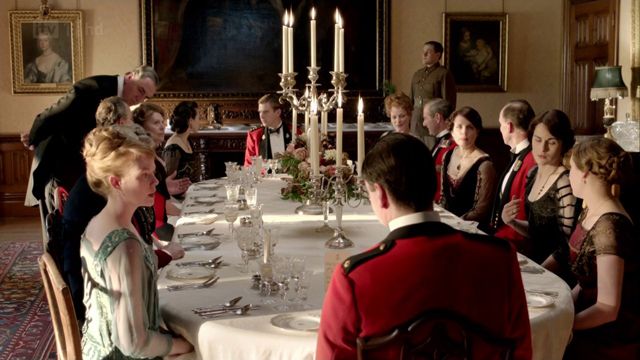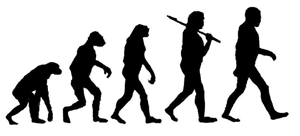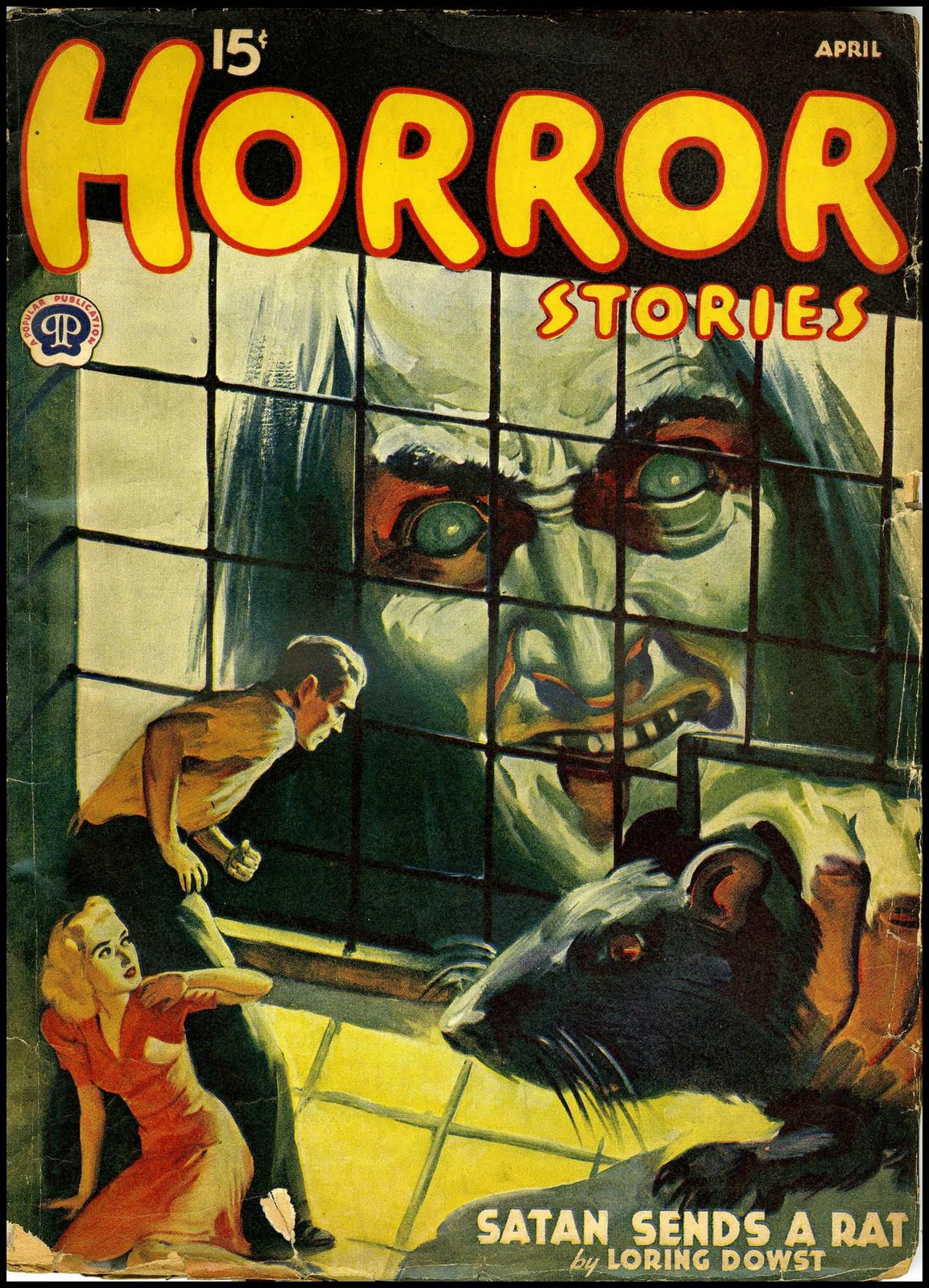- intro / credits
^ need funny attract loop
^ I started this talk as a discussion of my job - but that's not too interesting to this audience - instead - how to get the most out of a department - TA is a new field - 2006 article - 2009 trip - now recognized - but often mis-used - So this talk is about - Overview of what TA is for - How to be a good consumer of TA services - Keeping your TA department in shape
^ Will Wright hook
- I really wanted to do something similar
- because TA is hard thing to pin down
^ he'll give you a bunch on the soviet space program
^ or how mitochondria provides energy for your cells ^ but it all comes together in a beautiful whole
^ so, I did what I'm sure somebody in this room does and tried to google up some pictures I could use to illustrate the idea
^ he's resourceful - TA's love solving problems — we are usually self-selected — for stubborness and curiosity!
^ we specialize in improvisation + Its why we make good debuggers + But: - hair joke here - he's a loner - we work with others + segue: renaissance man
- An improviser
^ - the "technical" in technical art makes it sound like it's all engineering - Leonardo is proof idea that you can be technical and creative
^ We all know he painted the mona lisa
^ But he was also an inventor and tinkerer. And he was entirely self taught, which is true for most TAs - This image works because we're crazy half-and-half hybrids + we can talk to artists and to programmers; #hybrid + Sometimes, jack-of-all-trades-master-of-none - TA's work to bring art and engineering together + because we speak both languages, we are often the negotiators or diplomats
- An improviser
- A tech / art hybrid
^ segue: But what about teamwork?
- RPG quad
- Emphasizes teamwork #service
- Engineering = Wizard. The glass cannon
- Design = Theif. Leaves work up to everybody else
- Art = Fighter. In the trenches
- TA = Cleric. The support class.
^ what makes TA's happy is keeping everybody at max health; adding buffs, spamming heals, and raising the dead - or at least, recovering lost files. We're here to keep you in the fight
- An improviser
- A tech / art hybrid
- A support specialist
^ a Good metaphor! but service means more than spamming heals — nobody likes playing as just a buff buddy - and t
^ Segue: service != spamming heals! - Service which knows its own domain very well. #logistics - gives deference, but expects to be recognized for expertise
^ a black tie dinner for doesn't just happen! ^ somebody's got to check the inventory... ^ the core of that expertise is in logistics and planning + making sure we take on achievable tasks + making it easy to achieve those tasks. - is it sexy? not always - but it makes the sexy stuff possible - > https://41.media.tumblr.com/e291250ecce45758a3cd180ce1567487/tumblr_nawux9L5Wy1rv231do1_500.jpg
^ the running of such a big enterprise is very complex ^ and the folks upstairs don't always know the rules by which it runs ^ is it sexy? not always ^ but it makes the sexy stuff possible
^ you could do worse as a metaphor than the relationship between upstairs and downstairs as a way of describing how art and techart relate....
- An improviser
- A tech / art hybrid
- A support specialist
- A logistics wizard
^ Segue: I almost wanted to use that as the final image - partly because it's funny - But I realized, at long last, that I already had the right image - it's a T-Shirt you can order from tech-artists.org - And that sums it up: - TA = "making artists more productive" - The most precious resource in any production is creative #brain_cells - we make sure they don't get wasted on BS.
- An improviser
- A tech / art hybrid
- A support specialist
- A logistics wizard
- Fights for the users
— problem solving — translation — service — pipeline planning
- ta's fight for users
- we all know that parts of our jobs are garbage
- come in, 3 hours of emails, meetings, personnel conflicts...
- you're not in the mood to make great art
- finite reserve of decisions
- don't waste them
- that's important, because the industry often does not remember this
- we ask for a lot of technical gibberish
- a lot of process chaos
- not good for creativity
- TAs are there to fight that fight on your behalf
- to make smart workflows
- to keep people focused on creative tasks
- That fight is the hear of evererything we do.
- Remember that
- so let's look at how TA's do this over the life of the project
- prepro
- planning for future needs
- new workflows
- new tools
- BS checking
- Mr Carson
- prepro is good for TAs
- everything is up in the air
- lots of questions to answer
- lots of boundaries to push
- preprois tough for many artists
- bad pattern
- engineer bullying
- TA's stand up more
- ta's = stronger negotiators
- Ben W Story
- you need to negotiate
- 4 % not worth the hassle
- planning for future needs
- Production
- moving from pre-pro to production
- things get real
- time to redeem the promises
- take of the negotiator hat, put on the programmer hat
- this is stressful time for us
- we have to deliver, people are waiting
- we have to do it fast
- we have to do it reliably
- Ta's have not always done this
- when we got started 10 -15 years ago this was pretty haphazeard
- nowadays it's a critical path for the whole compnay
- with great power comes great responsibility
- Haywood's text editor
- moral: can't be too safe
- Expect good service
- smooth delivery
- fast fixes
- tested, bulletproofed
- trust
- moving from pre-pro to production
- Late production
- big questions answered
- big tools delivered
- now is when shit hits the fan
- all the guesses made in the dark get tested
- many will be wrong
- "rebuild all the physics message"
- "quantize all the vertex colors"
- "cnahge all of these p's to q's"
- this hits Ta's hardest
- it comes with the territory -but there are good ways and bad ways
- too many companies choose the bad way
- human wave attacks
- drudgery
- keeping people tasked out 100%
- if you waste artists time on crap, you're doing it wrong
- if you waste all TA time on crap, you're also doing it wrong!
- right way:
- good tools to minimize these crises
- up fron investsments to make us more flexible
- TA's who use automation
- learn from mistakes
- sometimes you have to do it anyway
- but it's a mistake
- wes g story
- don't be a garbageman
- recap
- get the balance right
- don't overdo tech
- no ivory tower
- don't overdo service
- ta's must be innovating
- don't overdo human waves.
segue?
25 mins
- Use all aspects of what TAs can do
- Maximize value
- Help department mature
^ Segue : Ta is important. It's a high value service. So you should learn how to use it. ^ Graphic wanted ^ the real core of this talk is to show you how to be a good customer - and informed consumer of TA services. I want to show you a high-level overview of what TAs do so you can keep them on track, demand more from them, and get the most out of your department. Also, help them to grow up
- Four very different kinds of work
- designing pipelines
- building systems
- supporting artists
- emergency management
^ There's an infinity of details that I can't cover here, but all TAs work falls into one of 4 big categories
[fill] Infographic, pie chart with design, build, support, and crisis mgmt as carson, medic, and macgyver
^ There's an infinity of details that I can't cover here, but all TAs work falls into one of r big categories ^ tools = leonardo ^ pipelines = mr carson ^ support = the medic ^ emergencies = macgyver
- this all boills down to one basic job:
- saving braincells
^ is this the right place?
^ Creative thinking is a precious, finite resource + don't waste it on BS stuff + Focus on story, moood, character + Not on file names, check boxes - All boil down to one big thing: + Making artists more productive
^ This should be about the 10 minute mark - transition to 'ta consumer' section
Creative decisions are a finite resource.
Don't waste them on crap.
- Strategy:
- designing tools and workflows
- logistics & planning
- prototyping
- Tactics
- front-line support
- education
- disaster response
^ need infographic
^ You can simply the four-way view a little further, into two big buckets + #Strategy: - this is big-picture stuff, year-to-year stuff - logistics, planning, bullshit checking - the "Mister carson side" - emphasis on picking right workflows and tools design - Ta's good because they can see the tech and production side! + #Tactics - the day to day side - the "heal spam" side - daily contacts, small jobs, help desk work - this is small picture stuff: keeping people happy day to day
- strategy and tactics are interdependent
- don't lose sight of either
- the right balance between them is key!
^ it's important to emphasize that these two halves of TA depend on each other. Finding the right balance is a key to getting the most out of the department
^ too much tactics doesn't achieve big savings or major new ways to work + Often artists only want this, don't want bigger pictures stuff - too much strategy can leave the artists feeling abandoned and the TAs out of touch. + Often TA's get too heads down, too much like 'programmers'
- balance shifts over the course of the project
- prototype & design
- implement & bulletproof
- maintain & explain
^ edit the infographic so the right heads are on the right bodies....
^ theme : industry keeps shooting self in foot
- strategy is how you approach making your game
- tools
- workflows
- expectations
- bad strategies are wasteful
- awkward
- fragile
- mysterious
- distractions
^ there's a million ways to do it wrong ^ but they all share some common features ^ they don't flow or don't work ^ you don't know how they work
^ I could do this talk entirely on horror stories of how we waste people's creativity and energy
^ zipper levels - giant maya file - long load time - nothing like WYSIWYG - awfule importer - crashing due to error reports!
artists live on iteration. Bad strategies don't let you iterate
^ bungie lighing - overnight bake time - artists believed they had precise control - but they didn't! - tail chasing
Artists want control. Give it to them or don't
^ the illusion of control is worst! ^ also: don't leave important decisions where they are going to get stomped
^ stories of mystery ^ QC files - Go ask somebody to do it for you is not a strategy ^ bungie materials - a ten year old email thread is not documentaion.
The value of a tool is how well it is used
Bad strategies discourage te.
^ pulp generator....
^http://thrilling-tales.webomator.com/derange-o-lab/pulp-o-mizer/pulp-o-mizer.html
- these are the kind of things we do to ourselves
- if you want to get the most out of your ta department,
- find people who are MAD about this stuff
- and let them loose to make things better
- What is bad strategy?
- Could be bad tech, or just bad process
- usually it's both
- No matter how you get there the symptoms are the same
- process that is mysterious
- Bungie materials story
- process that is too cumbersome
- Valve materials story
- Workflows that get in the way of iteration
- sluggish
- fragile or unreliable
- Workflows that aren't collaborative
- Ben W' Photoshop files
- In short: bad strategy gets in the way of artists doing their jobs
- Ta's are very passionate about these things
- our job involves cleaning up after these messes
- So we take a big interest in fixing them
- Could be bad tech, or just bad process
- Good example of how TA's can drive a succesful strategy:
- Changing bungie character process
- Old way:
- iterate in concept
- model
- texture
- review & approve
- rig
- animate
- Oops! back to step 1!
- New way
- iterate in concept
- Massing model
- Concept animation
- Review and approve
- Texture
- Rig and animate
- Yay!
- iterative
- good scopes
- clear
- robust
^ This slide needs tightening up
^ Strategy has many details, but good strategies... - Are understandable! - TAs can help more, if they contribute more - That's why I like this kind of exporter dialog ![1 button exporter dialog image] - instead of this ![typical Fbx with all options visible] - Are efficient + One button and go is good + But there are many other ways to make things efficient + automatic naming and file placement + visual browsers with tagging instead of folder hierarchies + Search and replace in data files - Are collaborative and iterative + CTRL+G is good !
- Pick the right battles
- Your TAs should have
- Good understanding of tech
- Good workflow instincts
- Good negotiating skills
- No hand-waviness or over-optimism
- TA's are good at strategy because
- They know both sides of the equation [#leonardo]
- Can talk to both sides
- Can help negotiate production decisions
- Girling story
- Jeff's recolor story
- sometimes the two views are very different!
- They have production know-how
- eating your own dogfood is good
- TAs do; tools programmers usually don't
- eating your own dogfood is good
- They've usually seen the results of mistakes close up!
- bad decisions often land in our laps
- We know the hard truth:
- no handshake agreement lasts
- everything is iterative
- yesterday's stretch goal is tomorrow's front line feature
- They know both sides of the equation [#leonardo]
- Is TA a department or group?
- Personally I don't much care
- if you're in a situation where TOE is important, you're probably already in trouble
- However, heres one useful principle to keep in mind
- You want the TAD in discussions where process is important!
- new features
- new workflows
- scalability
- The key thing that matter is making the team pay attention to artists time and how it is spent.
- It it takes a title to do that, then great
- You want the TAD in discussions where process is important!
- Segue: Now time for about tactics
- Like strategy there are a million details we don't want to cover.
- When I say tactics, you should hear "help" or "service" #cleric
- tactics matters
- small improvements are the core of the bond between TA and Art
- show that problems are understood
- and artist time is valued
- This is the most common form of tech-art
- in too many companies its the only form. ^ this needs a better transition
- To some degree it's just because little details matter
- All artists know that
- Saving a few seconds here or there, avoiding a minor annoyance can make a big psychological difference to your work
- But more importantly, you need the intel
- You don't know what's going on if you're not in daily contact
- I struggle with this all the time...
- Artists don't report bugs!
- You don't know what's going on if you're not in daily contact
- People don't always see the big strategic savings, but they see the little things.
- Artists are very conservative
- Vulnerable to stockholm syndome
- Example: Arena Net animations
- Everthing in one file??
- And if you change something at the beginning, you have to move all subsequent keys????
- And.... NO ONE COMPLAINED.
- People can be get used to everything
- they missed East Germany ^ possible gimmicks: Ostalgia? 8-bit games? Both?
- Segue: Moral of the Anet story:
- artists don't always stick up for themselves
- you need to get their trust to make lives better
- So you need to invest in tactics - aka, investing in service - to protect the ability of the strategy side to deliver
- If you want to implement new better workflows, you have to prove yourself to the artists
- Segue: since artists don't stick up for themselves, be proactive
- TAs need to spend time with their clients
- observing
- asking questions
- answering questions
- helping out
- If they lose touch they turn into just plain old tools programmers
- TAs need to spend time with their clients
- Good tactics boils down to relationships:
- be friendly
- be knowledgeable
- be helpful
- be responsive
- above all, be there ^ keep the joke about "if being a grouchy genius is needed, we have programmers for that"
- If your not in the trenches it's hard to judge those relationships...
- but here are some things you can look for
- Does every crash generate an automatic email?
- .. and do TA's respond?
- Are tools released with testing and validation
- .. or just dumped into a network share?
- Do TA's know how to help?
- there are lots of forms
- Good person-to-person skills
- Asking good questions
- Prioritizing
- training and education
- docs...
- there are lots of forms
- How Do TA's take and implement requests?
- is it transparent? Is it well managed
- in short: are the TA's in the trenches, helping out, and being part of the process day by day
- Good tactics is all keeping people happy and productive
- close contacts
- good relationships
- sharing and collecting information
- Good tactics is the foundation of strategy
- the information you learn in the trenches informs future decisions
- the trust you build helps bring your artists along for the ride
- The hardest task for TA's is balancing strategy and tactics
- Strategy, like engineering, tends to take lots of time
- tension between doing service and complex code
- TA's need to resist temptation to vanish into the ether
- constant contact is good for morale
- constant contact gives TAs better knowledge of the problems
- constant contact builds political capital!
- Should be as embedded as possible
- Seque: we've talked about the balance between #strategy and #tactics
- but, to extend the warmongering metaphor, "No plan survives contact the enemy"
- The other big complicating factor in TA life is the balance between the planned and the unplanned.
- Good strats will fail.
- Good service will not magic away production crises
- Managing crises is a critical part of TA
- Sure, nobody expect's a crisis. But they are inevitable
- Most common strategies all have weaknesses:
- 'we won't do that' ?
- oh yes you will !
- design and tech imperatives are all fluid
- publishers, designers, and playtest feedback all have a say!
- Moonrise character distances
- SOD cinematics
- oh yes you will !
- 'this tool will make that not a problem'
- tools are software. All software has bugs
- tools have long lead times, can't adapt to sudden changes
- eg, UE 4 removes script support
- tools, like games, don't arrive on time.
- 'our engine is perfect'
- no its not
- the 'perfect' description of the finished game != the perfect working environment
- eg, Bungie tags
- too optimized data is hard to change.
- 'we won't do that' ?
- in short: things will go wrong
- When things go bad, TA is the first line of defence
- Because we know the pipeline
- Because we can free up artists to make more art
- Because we have tools and techniques to make this less brutal
- by definition, it's not planned
- hard to improve, because every crisis is different
- high time costs
- unpredictable
- it's tempting to pawn it off on the unfortunate
- some companies have whole departments that do nothing but scut work
- There are some amazing people in those roles
- but it's a tragic waste
- Disaster response is a high skill job, not a low
- ta's have to maximize their own productivity so they can maximise yours
- Up front investments
- people skills
- all TAs need to be able to do their own automation, full stop [#macgyver]
- scripting < hard core programming, but it's essential -it's the only way to speed up massive drudge work
- open file formats
- ex: level search and replace
- automatable tools
- no tool is front line ready if it doesn't have production flexibility
- Maya example: everything is scriptable; vs old Max.
- asset tracking and metadata
- all forms of automation work easier with this
- Prevent bad source data
- p4 triggers to exclude bad files
- warn on out-of-date files
- can't check in files with bad references, etc.
- people skills
- Cynicism
- "We just wont do that" rarely works
- when it does, it's not always a good thing
- Important difference: Disaster prep vs lurching from one crisis to another
- production always involves crises
- TA's should be there to do the worst cleanup work
- BUT working this way all the time is a failure
- It's demoralizing for TAs
- It enables bad behavior in other departments
- Wes G. anecdote
- You’ll lose good people if you give them awful work to do
- true for artists too!
- Like Normandy beach -sometimes you have to make a frontal assault
- But if you do it every time you’ll be defeated
- back reference to #strategy.
+ Reminder: close contact with art is the key
- You need this for three reasons
- Can't do good tactics if you don't know the customers
- Can't do good strategy if you don't know the way things are made
- In the crises you need to be able to pitch in where needed, business card be damned
- Don't want to waltz in with no knowledge of ground truths
- TA is a complex role
- Short history, no easy models to use
- Boils down to a simple idea:
- TAs are there to make other people more productive
- Make good use of their ability to drive content strategy
- better tools and workflows
- avoiding bad decisions
- Build close relationships between TA and art
- constant contact
- good service from TAs
- buy-in from art
- Be prepared for crises
- Assume things will go wrong, plan accordingly
- But don't use that as an excuse for drudgery























